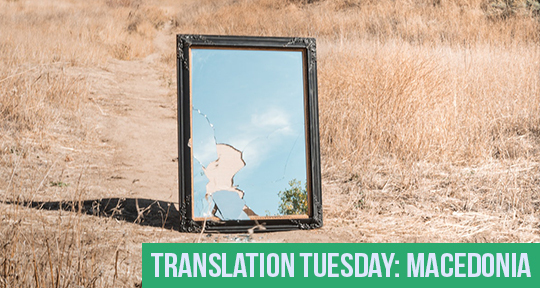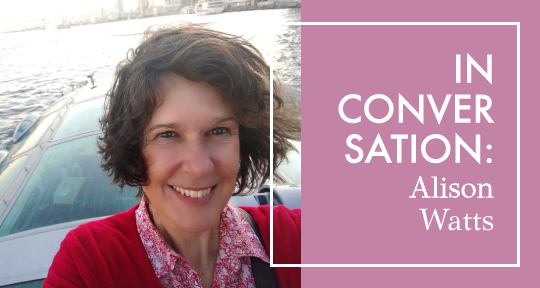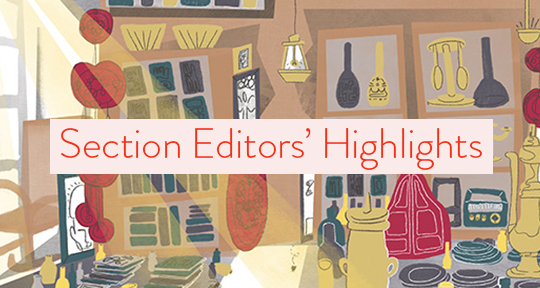This Translation Tuesday, we present a short story from Macedonian author Blagoja Ivanov, about the niggling twists of fate in the wake of the earthquake that flattened Skopje in 1963. A young couple buy an antique mirror from a family about to leave for a holiday. The earthquake happens; the family’s apartment is leveled; miraculously, the mirror survives. The catastrophe is too enormous, too terrible for words, and it blurs accordingly in the memory, but its suddenness sharpens and sweetens the memories of the times before. We see the old Skopje in a hot summer, a city of “comfortable homes” and people with happy aspirations, heedless of the disaster.
“The summer of 1962 began with intense heatwaves. Everything was melting from the heat, acquiring a gray color, occasionally interspersed with the shades of dried grass. And yet,” says Martin, “for me and my wife, it was the start of a beautiful season. So, after a few years, in collaboration with a few friends, we built small houses at the foot of Gazi-baba, thus replacing the damp rented rooms with comfortable homes. After so many years since getting married, we still hadn’t had children, and today it seems funny that we were so unhappy wandering around the old neighborhoods of Skopje, searching for a more comfortable room, which, at a minimum, wouldn’t be in the basement and would have some sunlight. No matter how much our memory may have betrayed us, those difficulties are forgotten, just as we forget many unpleasant things from our youth.
“At first, we stayed at my parents’ place, not worrying about work, food, or clothing, but a person still feels constrained in such moments, struggling to reconcile their needs with those of the community they have lived in for so many years. It is, perhaps, the urge we know from birds — as soon as they hatch, they fly away from the nest. My wife and I were very happy in our new apartment,” says Martin. “Around the little house, there was a small garden or rather a place that still needed to be transformed into a garden. We were completely drained of money, two rooms remained empty, and the garden also required some funds, but the easy part was already ahead of us after we had passed the tricky part. We marveled at the view we had from the balcony — in front of us, below, the city extended towards the fortress Kale and the French cemeteries, while on the left, distant high-rise buildings showed us where the river Vardar was.
“When a person is young, there are so many trivial things that make life difficult. For example, arranging the apartment. We somehow arranged the few objects and furniture we had in the kitchen and two rooms, while the others remained empty. During the first winter, in one room, we pondered earnestly about what to do next. Ideas were born and multiplied. To be this way or that way. In any case, it would be best if it happened immediately. If not immediately, at least by tomorrow. Those conversations were, in fact, essentially wonderful. We constantly drew sketches of furniture pieces and rearranged parts of the apartment. We knew by heart all the measurements of the rooms, all the angles and uneven spots. Sometimes there would be disagreements between my wife and me, but they passed quickly. Nervousness and impatience would sometimes take hold, then pass like a spring breeze, with one side always giving in… which one? It doesn’t matter,” says Martin, smiling, as he takes a bite of the mezze and sips on the rakija.



